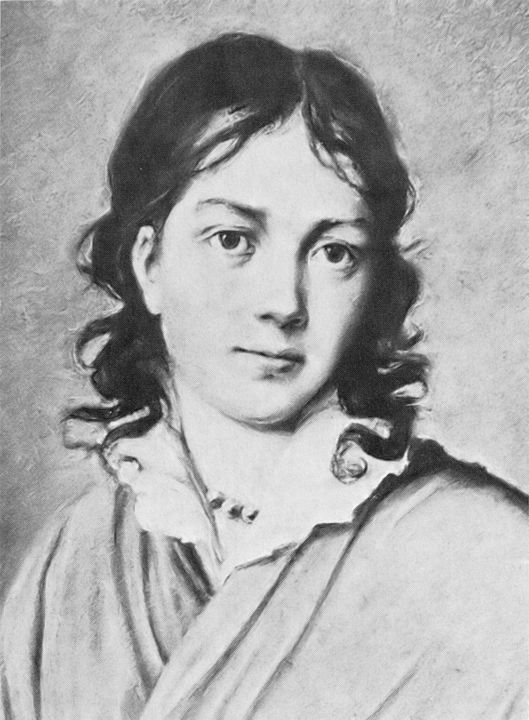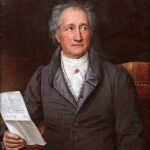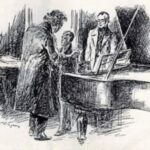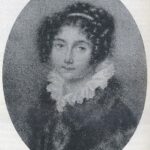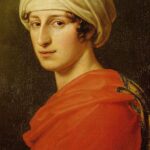‘My soul is a passionate dancer; she dances to hidden music which only I can hear… Whatever police the world may prescribe to rule the soul, I refuse to obey them.’
In these lines written to her brother, Bettina Brentano, the phenomenally talented writer, artist and social activist expresses her soul’s meaning, the lifeblood of her character. For Bettina this meant the freedom to pursue political and social justice, and live a life true to her essence and the spirit of the Romantic era.
Born into a family brimming with artistic talent, Bettina Brentano was a force of nature, a brilliant and emphatic individual and creative and revolutionary mind of 19th century Germany. Her gifts stretched from illustration to sculpture; her beautiful singing voice and songwriting captivated her audience. Her passion for and support of creative culture, the connections and friendships she developed with prominent figures such as Franz Liszt and the Brothers Grimm represent just part of her great sphere of influence. Her keen sense of justice for the underprivileged and oppressed formed a large part of her activism in later life, when she published key political works in support of such policies.
|Related: Was Beethoven Classical or Romantic era composer?
Early life and influences
Following her mother’s death when she was just eight years old, she spent three years in a convent in Fritzlar. Bettina was not unhappy there; she recalls a number of fond memories of her time with her sisters at the school. Franz (her half-brother) and his wife Antonie Brentano became her legal guardians when her father died at the age of twelve; however, Bettina lived with them for only a short while. Her grandmother, Sophie von La Roche, took her in, where she spent a number of happy and inspiring years. Her grandmother was a novelist and key figure in the salon scene. Growing up in the presence of literary talent, in an intellectual and artistic environment where discussion of political views and current events was commonplace truly ignited the civil activist within.
Married life
Clemens, Bettina’s older brother began to take an active interest in her personal development. He was a poet, and became his sister’s mentor, encouraging her education and looking out for her interests. He also suggested she read Goethe, which was to have a profound effect on her sense of identity. Clemens, whilst admiring her talents and vibrant personality, attempted to somewhat rein in his sister’s eccentricity and steer her from an unconventional path, in order to carve a proper housewife out of her! He introduced her to the poet Achim von Arnim, whom she married in 1811. Clemens, in collaboration with Achim, published Des Knaben Wunderhorn, a collection of folkstories and poems that was to become a significant literary text of the Romantic movement.
Ever greater presence in the public sphere
Bettina and Achim were happily married until Achim’s death 20 years later. She was a devoted wife and mother, with most of her time being taken up by family matters. When their seven children were older and no longer in need of her constant attention, Bettina’s presence in public life and pursuit of civil action grew, in large part through her publishing. Her first political text (This Book Belongs to the King) called for better renumeration and working conditions in factories, the end of the death penalty, and argued for rehabilitation as opposed to punishment for criminals. Written for the king of Prussia, Bettina was fortunate to avoid getting into trouble for her views, because they were friends!
Bettina and Goethe
From a young age, Goethe’s writings touched Bettina, and through them, she developed a deep passion for the novelist. At the age of 21, she met him for the first time. She idolized him and wanted to be his muse. Goethe was stunned by her magnetism. They began to write to each other, letters she later edited and published in Goethe’s Correspondence with a Child. Their connection was finally to come to an end due to tensions between Bettina and Goethe’s wife.
|Related: The meeting of Beethoven and Goethe
A recognition of souls – Bettina and Beethoven
Bettina’s own recollections of the first time she met Beethoven in 1810 tells the story of a recognition of souls.
Her account is something like this –
…Beethoven is sitting at his piano, working, when suddenly he feels a hand on his shoulder, and hears a shout in his ear – Bettina introducing herself! He turns to see a young woman standing above him, looking at him with the deepest brown eyes. Beethoven smiles, and tells her he has just composed a song for her! He begins to play the song of a character in one of Goethe’s books, a song that held great meaning to Bettina, as if he knew its significance to her! Then they walked, and spoke about music in perfect harmony and understanding, like they had always known each other…
In her letters to Goethe, Bettina put into words what Beethoven expressed through his music. To be precise, some of Beethoven’s most famous lines about music may have been translated through the Romantic spirit in Bettina. Scholars are unsure of the extent to which she embroidered her reporting of words and events, however, her editing is also understood to have served to strengthen the true essence of what she wished to communicate.
Bettina, quoting Beethoven: ‘…music is a higher
revelation than all wisdom and philosophy, the wine which
inspires one to new generative processes…’
Was Bettina Beethoven’s Immortal Beloved?
Bettina has been proposed as a potential recipient of Beethoven’s 1812 passionate letter to his Immortal Beloved. He was clearly fascinated by her, and she idolized him, however, when Beethoven met Bettina in 1810, he was courting another woman, and a year later, she married Achim. Also, in his correspondence with her, although his love for her is obvious, there are no signs of anguish, not even at the news of her marriage. As with all the women who could have been his Beloved, there is evidence for and against. Despite a large amount of research, it is entirely possible that we will never know!
A.K.
